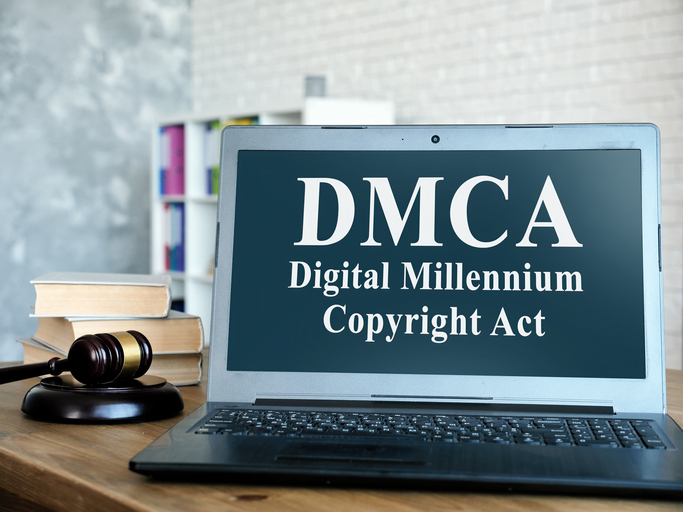The hosting industry continues to grow rapidly, offering vital infrastructure for businesses worldwide. From cloud computing to dedicated server hosting, providers play a key role in helping businesses maintain their online operations. However, even though hosting providers offer only the infrastructure for content hosting, they frequently find themselves entangled in legal disputes over copyright infringements committed by their clients.
The problem of copyright infringement on digital content is nothing new. Advances in technology have made it easier to create and distribute content, but have also expanded the scale of its misuse. In 1998, the United States introduced the Digital Millennium Copyright Act (DMCA), which tasked hosting providers with handling copyright claims from rights holders while offering a safe harbor from liability if claims were appropriately addressed. Despite the DMCA, hosting providers still face significant legal and operational challenges.
It’s crucial to note that the DMCA is a law specific to U.S. jurisdiction. Each country has its own legal framework regarding intellectual property. There is no global standard, so rules and procedures differ widely depending on the region.
This article explores the various obstacles hosting companies face and provides recommendations for minimizing risks.
The Evolution of Copyright Issues in the Digital Space
Copyright law in the digital age has become a crucial topic. As users generate, share, and consume increasing amounts of content, hosting providers act as facilitators by providing the necessary infrastructure. Hosting providers typically offer platforms for websites, applications, and services but generally have no control over the content uploaded by users.
The distinction between infrastructure providers and content creators is essential. Hosting providers merely offer the space for content, but they can be held legally responsible for their clients’ copyright violations, even if they have no role in creating the content.
In 2019 alone, more than 500 million DMCA requests were filed, a 45% increase compared to previous years. By 2023, the number of requests grew by another 30%, reflecting the increasing strain on hosting platforms.
While laws like the DMCA aim to shield hosting providers by providing safe harbor protections, they must adhere to specific requirements such as promptly removing infringing content upon receiving a valid claim. Nonetheless, many hosting companies face reputational damage due to allegations of enabling copyright violations.
Key Challenges Hosting Providers Face Regarding Copyright
Challenge 1: Handling Large Volumes of DMCA Requests and Automation Issues
A significant issue for hosting providers is the large number of DMCA takedown requests they receive. Major providers process hundreds, sometimes thousands, of these requests daily. This volume creates a considerable workload, as each request must be evaluated and verified before action is taken.
For example, YouTube processed over 7 million DMCA takedown requests in a single month in 2022, showcasing the sheer scale of requests faced by digital platforms.
Many hosting providers are implementing automated systems to streamline the process of handling DMCA requests. However, these systems are not foolproof and may sometimes mistakenly take down legitimate content, leading to reputational damage and customer dissatisfaction.
Delays in addressing DMCA requests can lead to potential legal liabilities for smaller providers without the resources to implement automated systems.
Challenge 2: Dealing with Fraudulent or Malicious DMCA Requests
Not all copyright claims are legitimate. In fact, many hosting providers must deal with fraudulent DMCA claims designed to unfairly take down competitors or block legal content.
The Electronic Frontier Foundation (EFF) has reported that approximately 30% of DMCA requests are incorrect or misused, leading to a loss of legitimate content and potential reputational damage for hosting providers.
Hosting providers need to invest significant resources into verifying these claims, which adds to their operational burden. Filtering out fake claims is a complex task requiring advanced systems and legal expertise.
Amazon Web Services faced a surge of fake DMCA requests in 2020, which resulted in the wrongful removal of legitimate content, harming both customers and AWS’s reputation.
Challenge 3: Navigating International Jurisdictional Complexities
Hosting providers operating globally must contend with varying copyright laws across jurisdictions. The European Union’s Copyright Directive, for example, enforces stricter rules than the DMCA in the U.S., making it challenging for companies to comply with different legal frameworks simultaneously.
In 2022, OVH had its servers blocked in the U.S. for failing to comply with DMCA requirements, resulting in a loss of business in the American market.
Failure to comply with copyright requests in different countries can result in fines, loss of market share, or even legal action. Providers must ensure that they adhere to the legal standards of each country where they operate.
For instance, VSYS Host emphasizes in its terms of service the legal requirements for using its services, including compliance with intellectual property laws. However, like most providers, they do not directly monitor or control the content clients host on their platforms.
Reputational Risks for Hosting Providers
Even when hosting providers strictly adhere to copyright laws, they are often accused of facilitating piracy. These accusations, whether grounded in fact or not, can significantly damage a company’s reputation.
For instance, Cloudflare faced widespread criticism in 2021 for allegedly supporting pirate sites, even though the company fully complied with DMCA procedures.
Negative publicity surrounding accusations of copyright violations can lead to a loss of clients and partners. A 2021 CISCO report revealed that 65% of customers would consider leaving a hosting provider if they were accused of copyright infringement, regardless of whether the accusations were valid.
Conclusion: Mitigating the Risks
Hosting providers face numerous challenges related to copyright, from processing massive volumes of DMCA requests to navigating the intricacies of international copyright law. Maintaining a balance between legal compliance, operational efficiency, and client protection is key to mitigating risks.
Hosting providers can minimize risks through:
- Automation: Implementing advanced systems to handle and filter DMCA requests efficiently.
- Transparency: Clearly outlining policies to both clients and content creators.
- Legal Support: Establishing strong legal teams to address compliance issues.
By following these best practices, hosting companies can better protect themselves while providing the critical infrastructure that powers the digital world.
Sources:
- DMCA Request Statistics, 2023
- CISCO Data Security Report, 2021
- EFF DMCA Study, 2022





































